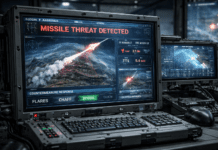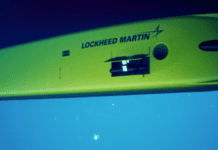This post is also available in:
 עברית (Hebrew)
עברית (Hebrew)
The US National Science Foundation (NSF) has launched a major new initiative to establish and lead the Center for Quantum Networks, or CQN.
Quantum internet, which will revolutionize how humankind computes, communicates and senses the world by creating a fabric to connect quantum computers, data centers and gadgets using their native quantum information states of “quantum bits,” or qubits.
Qubits offer dramatic increases in processing capacity over classical bits because they can hold more information—instead of having only a single binary value (0 or 1), qubits are capable of what is termed a “superposition” of both states (0 and 1) at the same time.
The White House National Quantum Coordination Office recently underscored the importance of the field by issuing “A Strategic Vision for America’s Quantum Networks.” The statement read, “By leading the way in quantum networking, America is poised to revolutionize national and financial security, patient privacy, drug discovery and the design and manufacturing of new materials, while increasing our scientific understanding of the universe.”
Northern Arizona University (NAU) will establish and lead the new center funded through an initial $26 million grant awarded to the University of Arizona by the National Science Foundation (NSF), and includes an additional five-year $24.6 million renewal option. The project will begin in October 2020.
A major focus of the CQN team will be research to advance key underlying technologies, including fundamental quantum materials and devices; the quantum and classical processing required at a network node; and quantum network protocols and architectures.
The CQN will also investigate the impact of a future quantum internet on education, workforce development, innovation and society.
“The CQN is a tremendously exciting opportunity for NAU’s research enterprise as well as for our students,” said NAU President Rita Cheng. “NAU will not only contribute world-class research capability in quantum information science, but expertise in education and evaluation as well. CQN will shape the future of computing technology, and NAU faculty researchers, along with their undergraduate and graduate students, will be integral team members leading the way,” as cited by homelandsecuritynewswire.com.


























